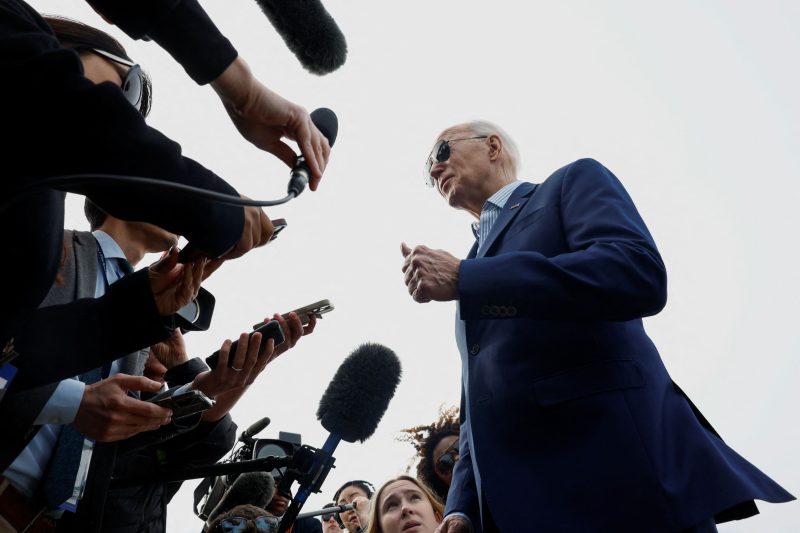In a recent statement, President Joe Biden expressed his readiness to sign a bill that could potentially ban the popular social media platform, TikTok, if Congress were to pass such legislation. This development has stirred up discussions among policymakers, tech experts, and users alike, with varying perspectives on the implications of such a move.
Biden’s stance on the issue aligns with ongoing concerns over national security and data privacy, particularly regarding foreign-owned apps like TikTok. The platform, owned by Chinese company ByteDance, has faced scrutiny from the United States government over data practices that raise apprehensions about the protection of user information.
Critics of TikTok argue that the app poses a significant risk due to its ties to the Chinese government and the potential for data exploitation or misuse. They believe that banning TikTok would be a proactive measure to safeguard American citizens’ privacy and national security interests.
On the other hand, supporters of TikTok view the app as a valuable platform for creativity, entertainment, and social connection. They emphasize the importance of balancing security concerns with the benefits that the app offers to its users, particularly younger demographics who constitute a large portion of its audience.
If Congress were to pass a bill leading to the ban of TikTok, it could have far-reaching consequences for users, content creators, influencers, and businesses that rely on the platform for marketing and engagement purposes. The ban would necessitate a shift in social media strategies and could potentially impact the digital landscape by altering the dynamics of online communication and content consumption.
Moreover, the ban of TikTok could set a precedent for future actions against other foreign-owned apps, raising questions about the regulation of technology platforms and the boundaries between national security interests and global connectivity.
As discussions continue around the potential ban of TikTok, it is essential for policymakers to consider the broader implications of such a decision on free speech, innovation, and international relations. Finding a balance between protecting data security and fostering a diverse digital ecosystem remains a challenging task in an increasingly interconnected world where technology transcends borders.
In conclusion, the prospect of TikTok’s ban in the United States underscores the complex interplay between national security concerns, data privacy issues, and the role of technology in society. As the debate evolves, it will be crucial for stakeholders to engage in thoughtful dialogue and research-based decision-making to navigate the complexities of this issue and its implications for the digital landscape.

